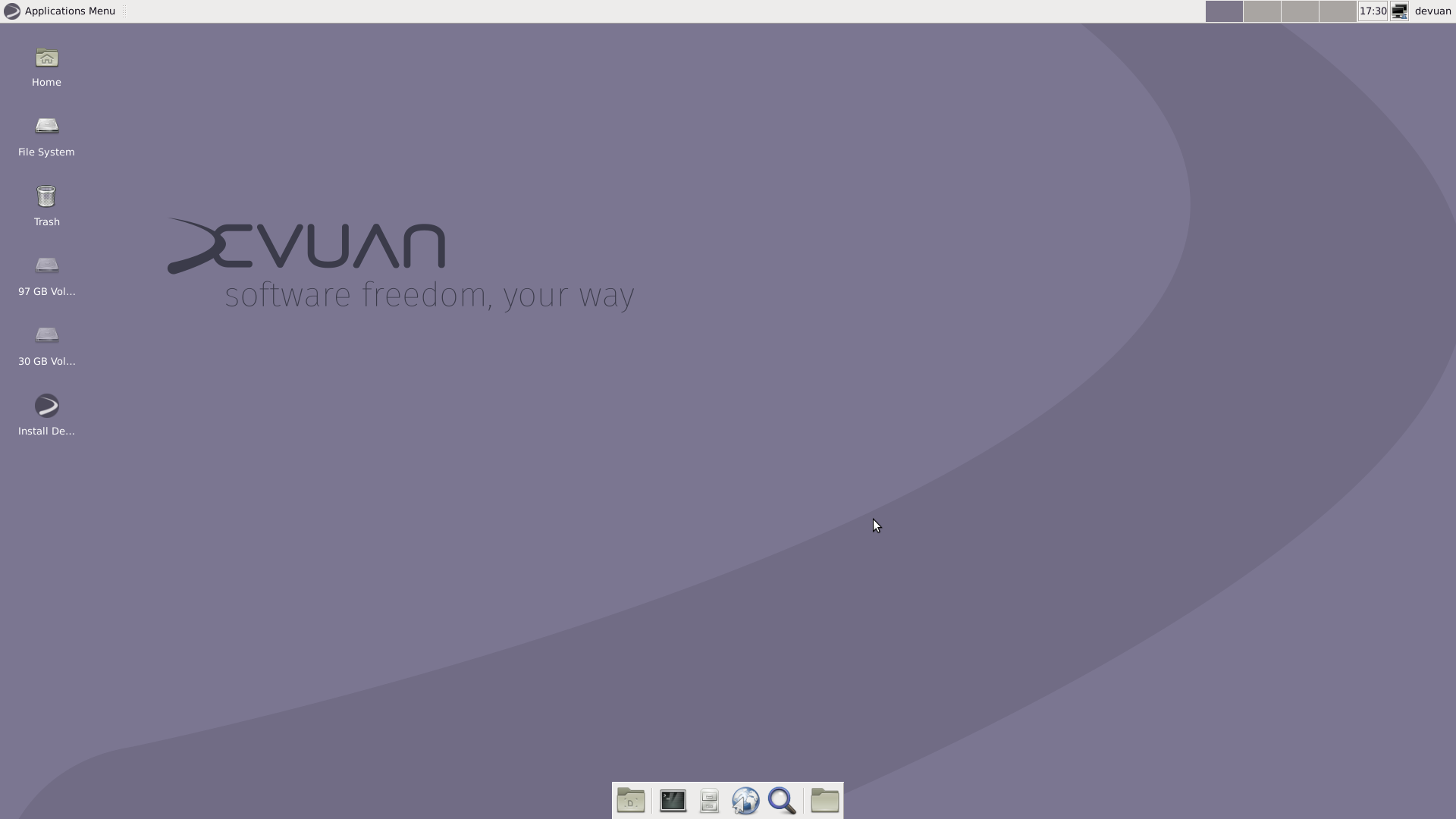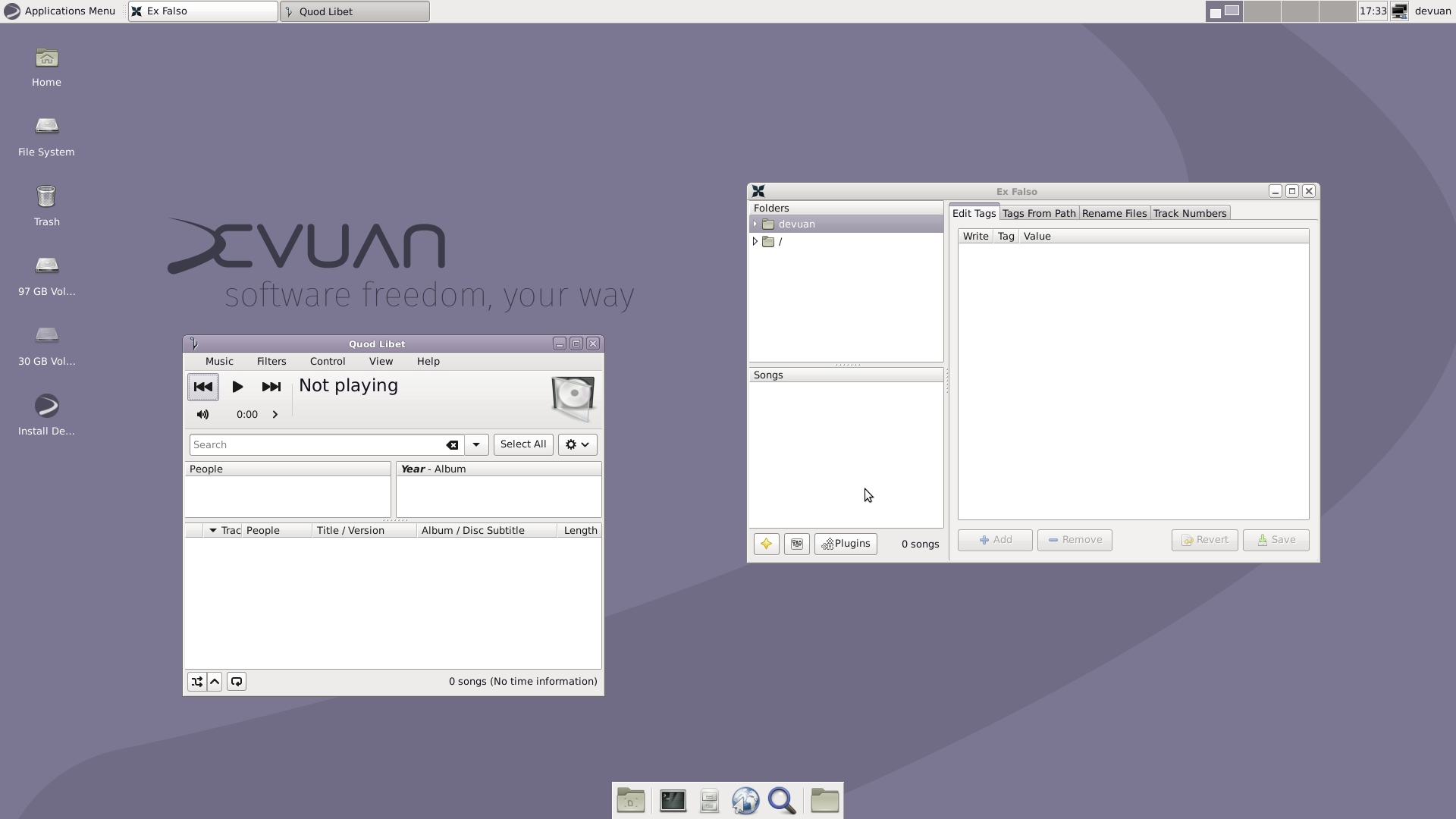Devuan 1.0.0 RC Released!
Debian, the father of Ubuntu, the grandfather of Linux Mint, and one of the most popular server distributions of all time, went through a time of turmoil when the decision was made to use systemd in April of 2012.
Many of the developers decided that they wanted to stick with sysVinit instead, believing that systemd went against the UNIX way of doing things and would result in a loss of control for the end-user. This caused said developers to leave the Debian team and create a new distro: Devuan.
More information about systemd and what the major change that many Linux users may have already transitioned into without even knowing it, can be found here.
Many home users likely never noticed the change from init to systemd in their distributions (assuming they are using one that made the switch), but powerusers and people who deal with things serverside most definitely had to learn to go about things slightly differently.
Devuan has been delayed for quite some time, initially a release was planned for 2015, and then two beta editions in 2016 came to light, but now, finally as of April 21, we have a release candidate that seems to be a very near-to-finished product. Debian 'Jessie' users can also safely migrate to Devuan 'Jessie' as well as Debian ‘Wheezy’ users can safely upgrade; which might be good for some to know. More information can be found in this git document on how to safely migrate.
A Look Inside Devuan

For this article, I decided just to run a LiveUSB of Devuan, rather than install it; as I personally have chosen not to run Debian on my home machine in the past due to it's lack of proprietary software. Now, many GNU/Linux users actually prefer to run minimal or no properietary software or drivers, opting to stay with everything being 'free' and open-sourced.
However, I use a lot of software that do not fall into said categories on a daily basis, and have no interest in changing that; not to mention odds are usually in favour of driver issues when I don't use a distro that supports proprietary code.
So, once I had made my LiveUSB, I booted into the system, and was met with the very familiar bland and mostly default Xfce desktop and colours I remembered from my last encounter with Debian. Everything ran smooth and fast even on the LiveUSB, except for one thing that I mentioned earlier...Driver issues; I had no WiFi! I wasn't surprised really.
My laptop does not have an ethernet port, as it's a Dell Inspiron 13 2in1 folding laptop, so I was stuck without an active internet connection while writing this article; so no updates were done, no playing with the package manager or installing anything. Whatever came with Devuan is what I had.

Devuan came with all the generic necessities that most distributions have; GIMP for image editing, VLC for video playing, LibreOffice for your office suite, Firefox for browsing the web. However it also came with a couple pieces of software I've not encountered before: A music player called Quod Libet, and another program called Ex Falso, which is an audio tag editor; A handy little addition to package by default, I must say, I usually keep Picard handy myself, so I liked seeing this.
Devuan came with a variety of wallpapers and a surprising amount of theme variations than I had expected out of a distro like this.
Again, I really want to comment on the speed of the system. It's not unheard of or unsurprising that many LiveUSB systems run a tad bit slower than they do compared to being run off your hard drive after being installed; your little USB stick likely is far less powerful afterall. However, this Devuan ran like a bolt of lighting even when in the live environment.
Heck, I would go so far as to say it was the fastest I've ever seen. Now, whether that translates over to when it's installed and connected to the internet or not, I'll never know; but I'd be curious to see if others are finding the speed of it to be so blazing fast themselves too.
Final Words
Without having an active WiFi connection, my testing was rather limited of Devuan, but I'm not really super concerned about that. What I more look forward to, is seeing how Devuan progresses in the future, and I'm wondering if Devuan will become a major competitor against Debian once it is released.
Will major distributions like Ubuntu and Linux Mint Debian Edition move to use Devuan as their base, rather than Debian?
Will server administrators choose to switch their systems over to Devuan rather than use the tried and true Debian?
I have a feeling that when Devuan is fully released, it may send shockwaves across the community. Time will tell!
What are your thoughts?
This article was first seen on ComTek's "TekBits" Technology News

- Log in to post comments